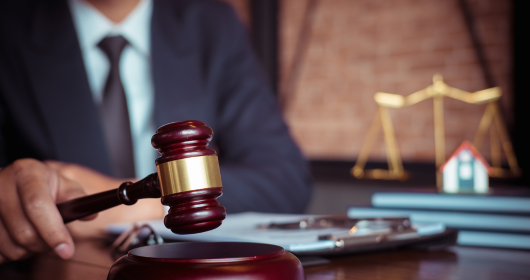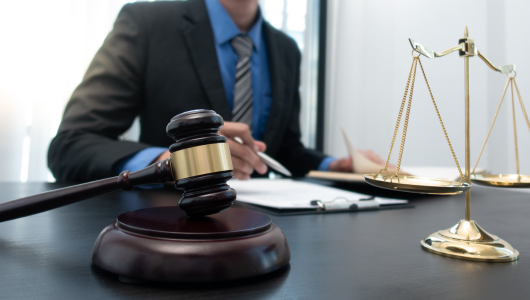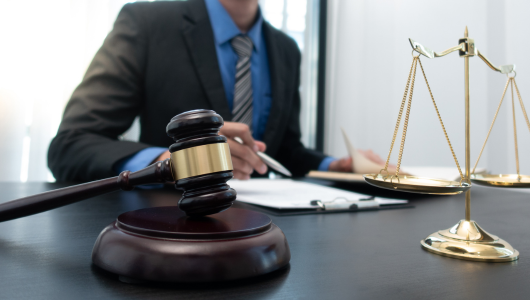Have You Been Charged with Exceeding the Prescribed Concentration of Alcohol within 3 Hours of Driving or Being in Charge of a Motor Vehicle?
- Over 30 years experience in the criminal justice system
- Track record of success
- Nationally acclaimed expertise
Free Legal Advice 24/7
-
Driving Under the Influence (DUI)
-
Exceeding the Prescribed Concentration of Alcohol (“ PCA ”)
-
Refusing to Undergo a Preliminary Breath Test
-
Refuse or Fail to Comply with a Request or Signal to Stop
-
Refusing to Comply With Directions Made by Police Regarding
-
Exceeding the Prescribed Concentration of Alcohol (Breath Analysis) within 3 Hours
-
Driving a Motor Vehicle With a Blood Sample Indicating a Prescribed Concentration of Alcohol
-
Expca of Drugs and Alcohol Within 3 Hours of Driving or Being in Charge
-
Consume Intoxicating Liquor While Driving
-
Consuming Intoxicating Liquor While Supervising Driving a Learner Driver
-
Breach of Alcohol Interlock Condition
What Does It Mean to Be Charged with Exceeding the Prescribed Concentration of Alcohol (Breath Analysis) within 3 Hours of Driving/Being in Charge of a Motor Vehicle?
The charge of exceeding the Prescribed Concentration of Alcohol (“PCA”) is defined under Section 49(1)(f) of the Road Safety Act 1986 (“RSA”).
Under Section 49(1)(f):
- Within 3 hours of driving or being in charge of a motor vehicle, an individual provides a breath sample for analysis under Section 55 using a breath-analysing instrument, and:
- (i) The result from the breath-analysing instrument indicates that the individual’s blood alcohol concentration (“BAC”) is at or above the prescribed legal limit; and
- (ii) The BAC detected was not solely caused by alcohol consumed after driving or being in charge of the vehicle.
Section 49(1)(f), which addresses driving while exceeding the PCA within 3 hours of driving, is often charged alongside Section 49(1)(b). In cases where a plea of guilty is entered, it is generally advisable to accept only one of these charges. Typically, the prosecution will proceed with the Section 49(1)(f) charge and withdraw the Section 49(1)(b) charge.
Differences Between Section 49(1)(b) and Section 49(1)(f) of the Road Safety Act 1986: Exceeding PCA vs. Exceeding PCA Within 3 Hours of Driving Timing and Context:
- Section 49(1)(b) focuses on the BAC at the time of driving or being in charge of the vehicle.
- Section 49(1)(f) focuses on the BAC within 3 hours of driving and includes the consideration of whether the BAC level increased due to alcohol consumed after driving.
- Applicability:
- Section 49(1)(b) applies to a direct measure of BAC at the time of driving.
- Section 49(1)(f) applies to cases where the BAC is measured within 3 hours after driving, considering whether post-driving alcohol consumption might affect the BAC.
In essence, while both sections deal with exceeding the PCA, Section 49(1)(b) is about the BAC level at the time of driving, whereas Section 49(1)(f) is concerned with BAC levels within a specified time after driving, considering potential post-driving alcohol consumption.
To Establish an Offence Under Section 49(1)(f), the Following Elements Must Be Demonstrated:
- You were driving or in charge of a motor vehicle.
- You were lawfully requested to undergo a preliminary breath test.
- You either registered a positive reading on the preliminary breath test, or you failed or refused to take the test.
- You were requested to provide a breath sample or to accompany the police to a location where a breath sample could be provided.
- The breath analysis was conducted within three hours of when you last drove.
- The results of the analysis showed that your BAC was at or above the prescribed limit (0.05 or higher, or above 0.00 if you are a learner or probationary driver).
- The BAC reading was not solely due to alcohol consumed after you drove or were in charge of the motor vehicle.
Additionally, the police must fulfill other procedural requirements, such as issuing you a certificate showing the registered reading and ensuring that a prescribed breath analysing instrument was used.
What Must the Prosecution Prove?

- You were driving or in charge of a motor vehicle within the 3 hours before providing a breath sample for analysis.
- Your BAC was at or above the prescribed legal limit.
- The BAC detected at the time of testing was not solely the result of alcohol consumed after driving or being in charge of the vehicle.

What Is the Prescribed Concentration of Alcohol?
The “prescribed concentration of alcohol” is 0.05 grams per 100 millilitres of blood or 0.05 grams per 210 litres of exhaled air in the breath (as defined in Section 3(1)). Mandatory licence disqualification periods increase if the BAC exceeds 0.10, and penalties become more severe for repeat offenders. The “prescribed concentration of drugs” includes any detectable amount of illicit substances.
Penalties for Exceeding the Prescribed Concentration of Alcohol:
If convicted of an offence involving alcohol or other drugs, such as exceeding the PCA within three hours of driving, the maximum penalties are as follows:
- For a First Offence:
- A fine of up to 20 penalty units.
- For a Second Offence:
- If the BAC is below 0.15: a fine of up to 60 penalty units or up to 6 months imprisonment.
- If the BAC is 0.15 or higher: a fine of up to 120 penalty units and up to 12 months imprisonment.
- For a Third or Subsequent Offence:
- If the BAC is below 0.15: a fine of up to 120 penalty units and up to 12 months imprisonment.
- If the BAC is 0.15 or higher: a fine of up to 180 penalty units and up to 18 months imprisonment.
Additionally, under Section 50(1A) of the RSA, if convicted or found guilty of exceeding the PCA within three hours of driving, the court must cancel your driver’s licence or learner permit. You will also be disqualified from driving for a minimum period, as specified in Schedule 1 of the RSA. Disqualification periods range from 3 to 48 months, though the magistrate has the discretion to impose a longer period.
If found guilty, you may also be required to complete a behavioural change program. Participation in such programs is determined by VicRoads.
Where Will Your Case Be Heard?
Cases involving driving offences related to alcohol or other drugs, such as exceeding the PCA within three hours of driving, will be heard in the Magistrates’ Court.
Factors and Defences to Consider:

- Do you have a defence?
- Did the police follow the correct procedural requirements (such as issuing you a certificate showing the registered reading)?
- Had more than three hours passed since you last drove?
- Did you consume alcohol after driving but before being tested?
- If pleading guilty, what steps can you take to reduce your sentence?

-
Driving Under the Influence (DUI)
-
Exceeding the Prescribed Concentration of Alcohol (“ PCA ”)
-
Refusing to Undergo a Preliminary Breath Test
-
Refuse or Fail to Comply with a Request or Signal to Stop
-
Refusing to Comply With Directions Made by Police Regarding
-
Exceeding the Prescribed Concentration of Alcohol (Breath Analysis) within 3 Hours
-
Driving a Motor Vehicle With a Blood Sample Indicating a Prescribed Concentration of Alcohol
-
Expca of Drugs and Alcohol Within 3 Hours of Driving or Being in Charge
-
Consume Intoxicating Liquor While Driving
-
Consuming Intoxicating Liquor While Supervising Driving a Learner Driver
-
Breach of Alcohol Interlock Condition
Testimonials
What people Say
St Kilda, Victoria 3182
1800 130 120
-
I found myself again before the magistrates court for an indictable offence, I was worried about receiving a jail sentence because of my age and h... Read MoreI found myself again before the magistrates court for an indictable offence, I was worried about receiving a jail sentence because of my age and history, but once I spoke to Jasmin Dhillon and the MK Law team, all my worries were taken away! Jasmin took the time to explain to me the process and kept me informed every step of the way, she has a deep understanding of the law and a genuine heartfelt commitment to achieving the best possible outcome for her clients. Thanks to her hard work and expertise, we achieved a no conviction outcome which has enabled me to continue working hard and pursue my dream career! I am forever grateful for their service and would highly recommend the MK Law team to anyone in need of legal assistance, they are truly dedicated and one of a kind in their field. Read Less55/5
-
Thanks Marcus Denning for being with me from start to end and to give me a fantastic outcome from my trial..👏👏👏🎖🎖🎖🎖🎖🎖Fi... Read MoreThanks Marcus Denning for being with me from start to end and to give me a fantastic outcome from my trial..👏👏👏🎖🎖🎖🎖🎖🎖First time getting charged, didn't know what to do. I was like a fish out of water. Started to research some law firms and mk law popped did some background checks and found good info about the firm. So I stuck with them and i don't regret nothing about my experience with mk law..... Read Less55/5
-
I recently used the services of Marie Lukic of MK law. She is very professional, dedicated and knowledgeable lawyer. Extremely grateful to have Ma... Read MoreI recently used the services of Marie Lukic of MK law. She is very professional, dedicated and knowledgeable lawyer. Extremely grateful to have Marie who did exceptional job. I would highly recommend Marie Lukic of MK law firm. 👍 Read Less55/5
-
Marie Lukic defended me and l couldn’t be happier with the results, she listened too what l said and was able too put in her words too get me th... Read MoreMarie Lukic defended me and l couldn’t be happier with the results, she listened too what l said and was able too put in her words too get me the best results. She’s a fighter and goes into battle for her client 5 stars l highly recommend her thanks Marie Read Less55/5
What to Do Next:
After being charged under Section 49(1)(f) for exceeding the prescribed concentration of alcohol (PCA) within three hours of driving, the next steps involve several key actions.
First, seek legal representation from a lawyer at MK Law who specialises in traffic law and criminal law, who will provide advice, review evidence, and represent you in court. You will attend court proceedings where you must decide whether to plead guilty or contest the charges. If you contest, your lawyer will gather and challenge evidence, such as the accuracy of the breath analysis and police procedures. If found guilty, the court will impose penalties, which can include fines, imprisonment, and a driver’s licence disqualification ranging from 3 to 48 months.
You may also be required to participate in a behavioural change program. Post-trial, you can explore options for appeal if you are dissatisfied with the verdict, and once the disqualification period ends, you may need to apply for licence reinstatement. Ensuring compliance with court orders and rehabilitation requirements is crucial for mitigating the long-term impact of the offence. Call 1800 130 120 to seek advice and representation to achieve the best possible outcome for your circumstances.
Free Legal Advice 24/7
Contact Us
Call Anytime For Free Legal Advice 24/7
Top 5 firms by reputation dealing with traffic and criminal law matters.
- 2/212 Barkly Street, St Kilda Victoria, 3182 Australia
- 1800 130 120
- marcus@mklawfirm.com.au